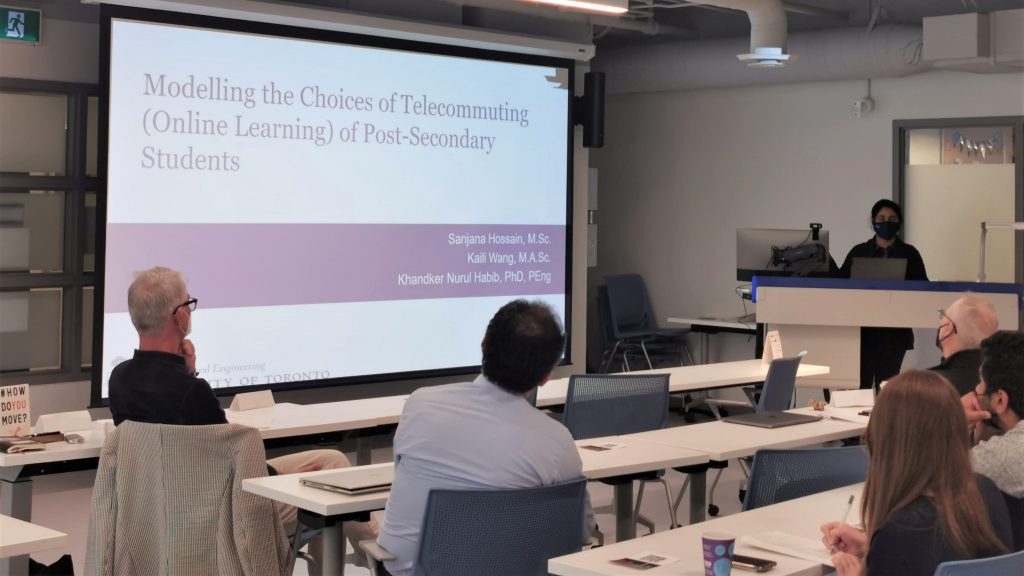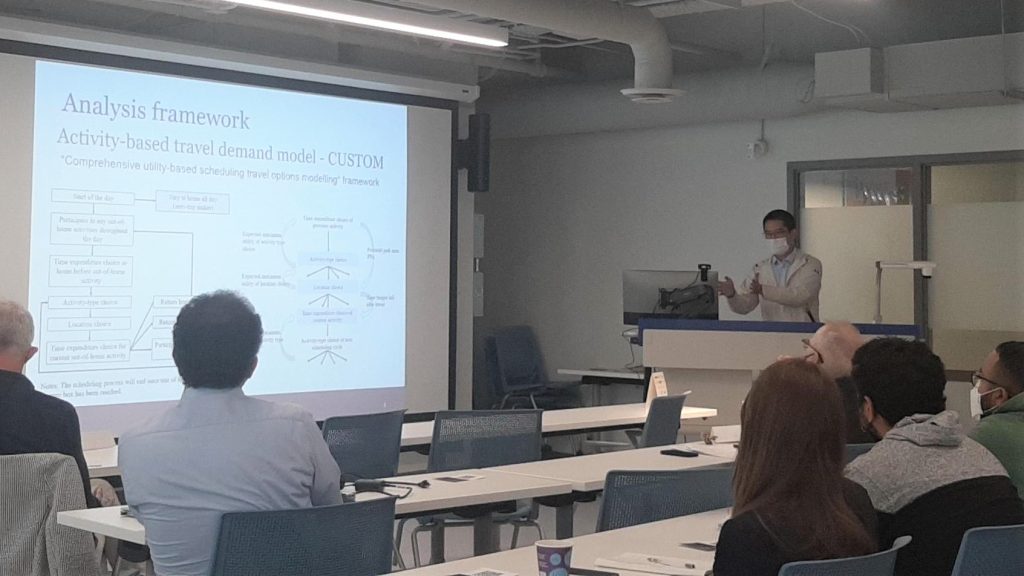
On June 3 and 4, StudentMoveTO hosted “Moving the Student Body,” a symposium on student mobility in the Greater Toronto and Hamilton Area.
StudentMoveTO is a unique partnership bringing together researchers and students from universities and colleges across the region, policymakers and advocates.

Mobility Network researchers have been deeply involved with StudentMoveTO throughout the multi-year project, and were well represented at the symposium by Sanjana Hossain, Kaili Wang, Ron Buliung, Khandker Nurul Habib and Matti Siemiatycki.
Over this past weekend, scholars gathered at the School of Urban and Regional Planning, Toronto Metropolitan University (TMU) to discuss the latest round of findings from research making use of the 2019 survey. The discussions also included conversations about COVID effects, a particularly important focus given the timing of the survey relative to the start of the pandemic.
 |  |  |
|---|
Transport experience of persons living with disability: Buliung
As one example, a critical area of scholarship enabled through this unique collaborative project is Professor Ron Buliung’s examination of transport experiences of disabled persons (persons with disability). It is indeed rare to find travel survey data that explicitly includes representation of the transport experiences of disabled persons. The 2019 edition of the StudentMoveTO survey is one exception.
Developed jointly between UofT’s Professor Ron Buliung and Professor Raktim Mitra (TMU), the newly introduced questions about disability, transport and education experiences enabled researchers to question the ways in which transport systems may indeed contribute to the production of disabling student experiences in higher education in Southern Ontario. Indeed, research from the Canadian Human Rights Commission indicates that disabled students are less likely to achieve their desired level of education attainment, are more likely to be bullied because of disability, less likely to complete a university degree or have a longer time to completion, ultimately giving rise to underemployment and lower incomes on average. Ten percent of disabled students report needing to stop their education early.
So, what if transport systems are having a role in producing these negative outcomes and experiences for disabled students who indeed have a right to equal and stigma/barrier free access to education?

Buliung and his former Master’s student Jordan Aharoni found that disabled postsecondary students (students who reported using a mobility aid) were more likely to report that their commute discourages them from coming to campus, and is a barrier to academic success – when compared with all other students.
Buliung also talked about “commuting as care work” noting that disabled students are more likely to have commutes facilitated by other family members.
Buliung and audience members then briefly discussed the possibility of intervention to address these findings, wondering what can university’s and colleges do to better support disabled students and their families – who may be engaged in considerable care work to enable education access.
With files from Ron Buliung and Matti Siemiatycki.
Related content
- StudentMoveTO Symposium 2022 “Moving the Study Body”
- UTM post “Enabling education access for persons with disabilities in Canada’s schools,” by Ron Buliung, June 8, 2022
- Research says your commute impacts your academic success, Toronto Metropolitan University, June 7, 2022
